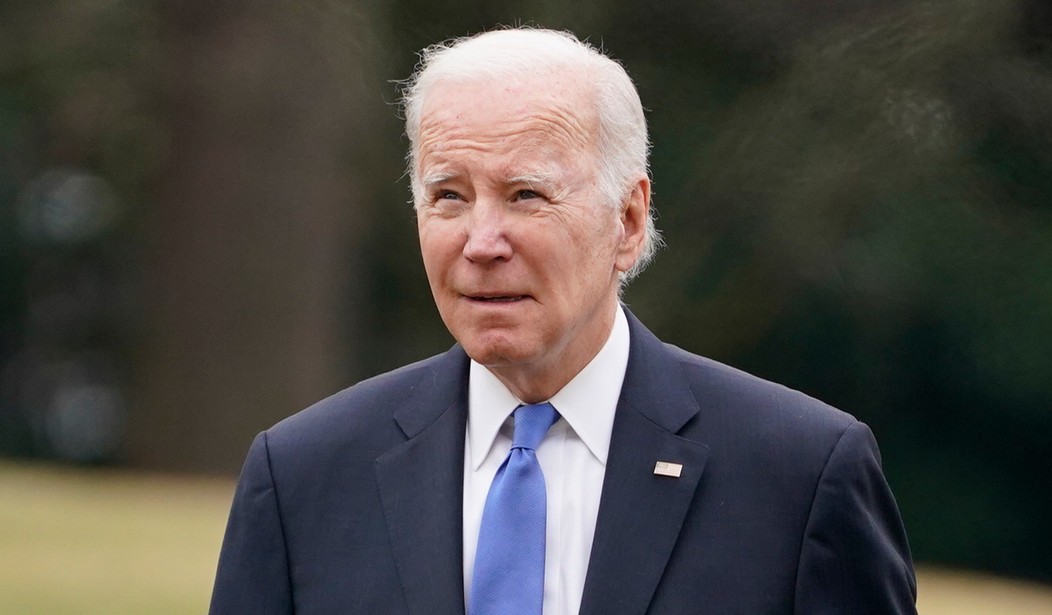Joe Biden was in Ukraine on Monday — a visit that surprised everyone. There’s a good reason for that. According to some of Putin’s most rabid media supporters, if they had gotten wind of Biden’s trip they would have shot down the plane or tried another way to assassinate the president.
This was no spur-of-the-moment trip. The planning for Biden’s visit to Kyiv began months ago and involved so much cloak and dagger that Biden ended up using a train to go from Poland to Ukraine — a ten-hour journey that probably had the Secret Service on edge the whole way.
Biden’s visit is happening around the war’s first anniversary, and after showing the U.S. flag in Ukraine, Biden headed to Warsaw to deliver perhaps the most important speech of his presidency. He must find a way to thread the needle between support for Ukraine’s existential fight for survival without threatening to topple Russian President Vladimir Putin.
It’s a Kobayashi Maru scenario — a no-win situation because Biden pledged in Kyiv to keep supporting Ukraine “as long as it takes.” As long as it takes for what? President Zelenskyy says Ukraine will keep fighting until every inch of territory is recovered. That includes Crimea and the Donbas region now securely in the hands of Moscow and its allied militias.
Jake Sullivan, the national security adviser, said during a press conference call from Kyiv: “The visit today was an effort to show, and not just tell, that we will continue to stand strong.”
These messages matter because Ukraine is now engaged in a war of attrition on several fronts. In the eastern part of the country, Ukraine and Russia are fighting an old-fashioned artillery battle. Russia sends waves of conscripts and convicts at the Ukrainian defenses, suffering huge losses and appearing not to care. The Ukrainians use up huge quantities of equipment and ammunition—one Ukrainian politician in Munich reminded me that they need a bullet for every Russian soldier—and, of course, take losses themselves.
At some point — and it must be soon — Joe Biden is going to have to show the actor-turned-President Zelenskyy just who the senior partner in this relationship is — not only to slow down the shipment of ever-more-sophisticated arms to Kyiv but to create the psychological conditions for some kind of rapprochement between the two countries and forestall a catastrophic conflict between Russia and NATO.
For his part, Putin is still breathing fire at the West thanks to some stupid rhetoric from the Biden administration.
Russia did not make this conflict a war for the Putin regime’s survival. The U.S. did. As Putin continues to hurl division after division at entrenched Ukraine positions, he becomes less and less a threat to the rest of Europe. Ukraine is bleeding Putin and the Russian army dry. But the Russian dictator is holding out hope that he can outlast the west and Ukraine, eventually being able to dictate far more generous terms than he could get now.
At what point does Biden grasp the opportunity to pressure Zelenskyy to deal? The president prides himself on his realistic approach to foreign policy, and promises of support to a smaller nation being attacked by a much larger one are right and proper.
But there has to be a limit to what the United States can and should do to support Ukraine. And then, as the Wall Street Journal points out, there are other considerations.
Ukraine has every right to defend its territory, but it doesn’t have a right to American money and materiel to prosecute a conflict without end. Reports that China may start arming Russia’s military only reinforce the risk that Ukraine’s heroic battle becomes a protracted stalemate, and it is time to start prodding Kyiv toward a plausible endgame.
Nobody wants to talk about territorial concessions, but Russia isn’t going to surrender Crimea or, it seems, most of the Donbas, where historically pro-Russian populations lend a patina of legitimacy to some of Moscow’s claims. Some kind of conditional—perhaps deliberately ambiguous—territorial deal, or at least a truce along acceptable front lines, will be needed. It’s a messy solution that falls short of Mr Zelensky’s aims but is better than years of war.
“Perhaps we need a coward in the room when we are talking about nuclear war,” John Kennedy’s UN ambassador Adlai Stevenson said at the height of the Cuban Missile Crisis. At the moment, Joe Biden has now upped the ante, forcing Vladimir Putin to dig in his heels and continue the slaughter in Ukraine.
What Ambassador Stevenson feared in 1962 is taking shape in 2023. There is no “endgame” at present. Just an open-ended commitment to destruction that could very well draw Russia and the United States into a conflict that neither wants and that no one can win.










